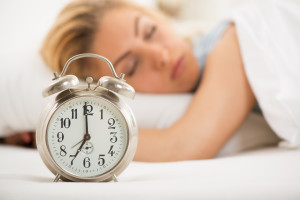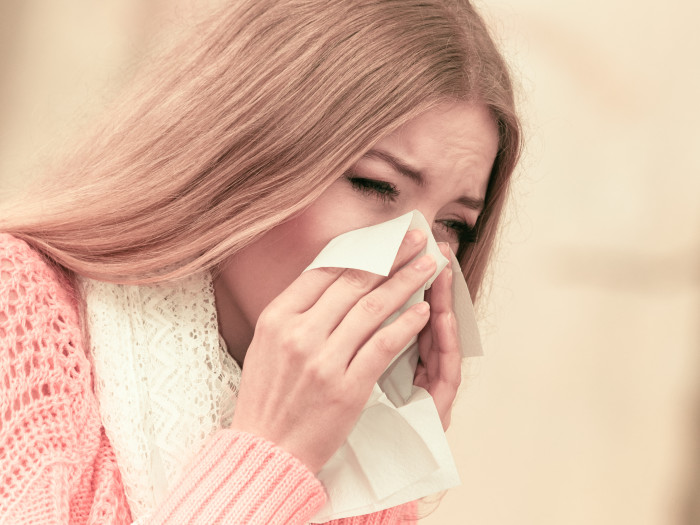Building lean, solid muscle is a 24-hour job…and 23 of those hours consist of post-workout recovery.
In other words, your work is NOT done when you leave the gym!
Newsflash, buddy: your muscles don’t grow when you exercise them. In fact, by causing small microtears and creating a buildup of lactic acid, exercising actually makes your muscles temporarily weaker.
It’s only after your workout, during the recovery phase, that your muscles respond to the stress of working out and grow bigger and stronger.
So how do you maximize muscle recovery?
There are 5 main factors to helping your muscles recover as quickly & completely as possible:
Post-Workout Recovery Factor #1: Time
Nutrition, sleep, active recovery, and all that stuff is great—and you’ll learn more about those strategies below. (Keep reading.)
But the #1 most important factor to muscle recovery is time. Time is what your muscles need to grow.
Here are 2 quick tips to make sure your body has enough time to recover from your workouts:

1) Give each muscle 2-3 days off between sets.
This means you have to plan your workouts accordingly.
If you’re doing full-body workouts, you should take 1-2 days off in between workouts. (So if you do a total-body workout Monday, don’t do it again until Weds or Thurs.)
If you’re doing split workouts (like upper body/lower body, pushing exercises/pulling exercises, etc.), you can work out 2 days in a row…but only if the 2 workouts don’t overlap in terms of muscles.
Doing upper-body on Monday and lower-body on Tuesday is OK. So is doing pushing movements (bench press, overhead press) on Thursday and pulling movements (pull-ups, rows) on Friday.
But doing bench press on Monday and overhead press on Tuesday is NOT OK, because you’re working your shoulders, triceps, and upper chest 2 days in a row.
Keep in mind that high-intensity cardio (like HIIT sprints) should count as a leg exercise.
2) Every few months, take a week off.
Every 3-4 months, I recommend taking an entire week off from weight lifting. (Men’s Fitness agrees.) You can still do some light cardio and get in some general activity (playing sports, etc.), but lay off the weights.
Trust me, you will NOT lose your gains in that time. In fact, you’ll probably be surprised to return the gym even stronger than you were before you took the break!
Post-Workout Recovery Factor #2: Deep Sleep

Sleep is sort of a sub-set of time. Your body needs time to recover, but sleep time like an accelerated recover period.
You should aim for at least 7.5 hours of sleep per night.
Why 7.5 and not 8?
Many people don’t realize that a complete sleep cycle is actually 90 minutes long. So 5 sleep cycles = 7.5 hours of sleep.
That’s the minimum. Getting 9 hours is definitely better (6 sleep cycles).
Also keep in mind that lying in bed does not necessarily equal sleep. Get a FitBit and you’ll come to realize that every night you spend a 15-45 minutes tossing and turning, which should NOT count toward your sleep total.
Here are a few quick tips to improve your sleep quality:
1) Take magnesium before bed.
Magnesium relaxes you and reduces cortisol levels, helping you sleep. If you take a supplement, make sure to avoid magnesium oxide because your body can’t absorb it very well.
Personally I use a magnesium spray, because your body absorbs magnesium very well through the skin.
2) Turn the thermostat down.
Your body temperature naturally falls at night, so by keeping your bedroom on the cool side you’ll be reinforcing this cycle and helping your body to sleep more soundly.
3) Turn on a fan.
A little bit of white noise is a good thing. Use a fan, an air cleaner, or even a dedicated white noise machine. This will drown out any little noises that might otherwise wake you up.
Post-Workout Recovery Factor #3: Nutrition
Think of your diet like lumber: the food you eat is the construction material your body uses to construct a stronger, leaner you.
Diet & nutrition is obviously a huge topic, so we’ll just touch on the couple things that apply most to muscle recovery:
1) Get enough calories, carbs, & protein (especially if your workouts are intense).
Too many people try to work out like a monster and then starve themselves, all because they want to lose weight as fast as possible.
Unfortunately, it doesn’t work that way.
If you work out intensely, you need to fuel your body with the nutrients it needs to recover. And that means getting at least a minimum amount of calories, and especially protein & carbs.
After workouts, take a good protein shake with a mixture of whey protein & collagen protein.
(Most people know about whey, but collagen is another GREAT protein source. It has a super healthy mixture of amino acids.)

2) Avoid sugar & trans fats.
It’s a little-known fact that unhealthy foods like these can actually slow down recover by promoting inflammation.
A little bit of acute inflammation is healthy and speeds up recovery, but chronic inflammation is NOT your friend.
Speaking of inflammation…
3) Eat anti-inflammatory omega 3 fats.
In my opinion, the best source of omega 3s is fish—I particularly like wild-caught sockeye salmon.
But flax seeds and grass-fed beef are other good sources.
Post-Workout Recovery Factor #4: Life Stress
Think about your day-to-day life. How stressful is your job? How stressful is your home? How much time do you take to unwind and relax?
These things all add up to your total life stress.
The more chronic, ongoing stress you have in your life…the less stress your body will be able to recover from in the gym.
Sorry, big-wigs and execs—it’s sad but true.
The good news is, you can proactively take steps to decrease the stress in your life and find new outlets for achieving relaxation.
A few suggestions:
- Meditate. The effectiveness of meditation is proven by both research experience.
- Work on your relationships. Spend an extra hour or two with your spouse and kids. You’ll be amazed by how much closer you all feel—and how much more inner peace you feel in your day-to-day life.
- Set boundaries at work. It’s easy to get caught up saying “Yes” to everything. But it’s more responsible to say “I’m sorry, but I don’t have the time to give this project the time it deserves right now.”

And for the time being, until you get your stress under control, you should add in a little extra rest each week to make up your compromised stress response. This might mean decreasing your workouts from 4 days/week to 3 days/week, or from 60 minutes per session to 45 minutes per session.
Post-Workout Recovery Factor #5: Bonus Muscle Recovery Strategies
Here are a few bonus muscle recovery tips:
1) Take advantage of active recovery. The day after your workout, do a few sets of light weight, high-rep exercises targeting the same muscles. This will bring blood to the muscles, flushing out lactic acid, delivering nutrients, and reducing delayed-onset muscle soreness (DOMS).
2) Get a massage or use a foam roller. Both of these relaxing interventions will help break up knots and relieve tension in your muscle fascia.
3) Try cold exposure. Cold reduces inflammation, which is why professional athletes takes ice baths after a game. If you can’t stand the thought of an ice bath, try getting started with a cold shower. It’s invigorating!
Signs That You’re Overtraining
Once in a while you may find yourself starting to slide into a state of overtraining.
People talk about overtraining a lot, but what is it, really? Specifically what should you look for?
Here are a couple of the warning signs of overtraining:
- Elevated heart rate in the morning. If your HR is 10 bpm or more above normal when you first wake up, that’s a reliable sign that you’re overtrained.
- Chronic fatigue. Feeling tired all the time. Remember, exercise is supposed to make you have MORE energy!
- Lack of hunger. If your appetite has disappeared, it could be a sign that your metabolism has slowed down due to overtraining.
- Insomnia. Paradoxically, sometimes it’s hard to rest when you need rest the most.
- Have a cold or being chronically sick. This is because overtraining compromises your immune system.

If you have one or more of these symptoms, then you might be overtrained. Take the next 2-3 days off, making sure to eat & sleep well during that time. Take your heart rate in the mornings and don’t resume your workouts until your morning HR is no longer elevated and your symptoms dissipate.
Do this, and you’ll find that when you’ll be able to work out harder and your body will be better able to recover afterwards—meaning that you get more benefit from the same amount of gym time.
(Disclaimer: I’m not a doctor and this is not medical advice. For information purposes only.)